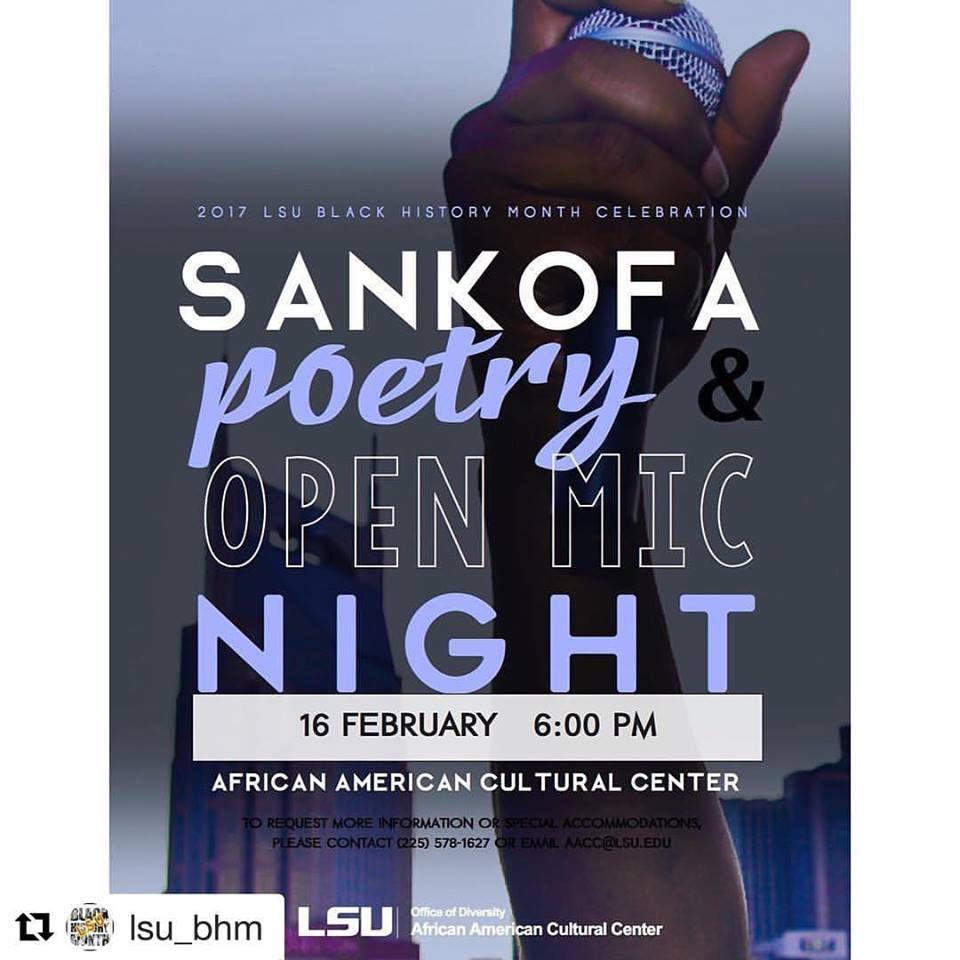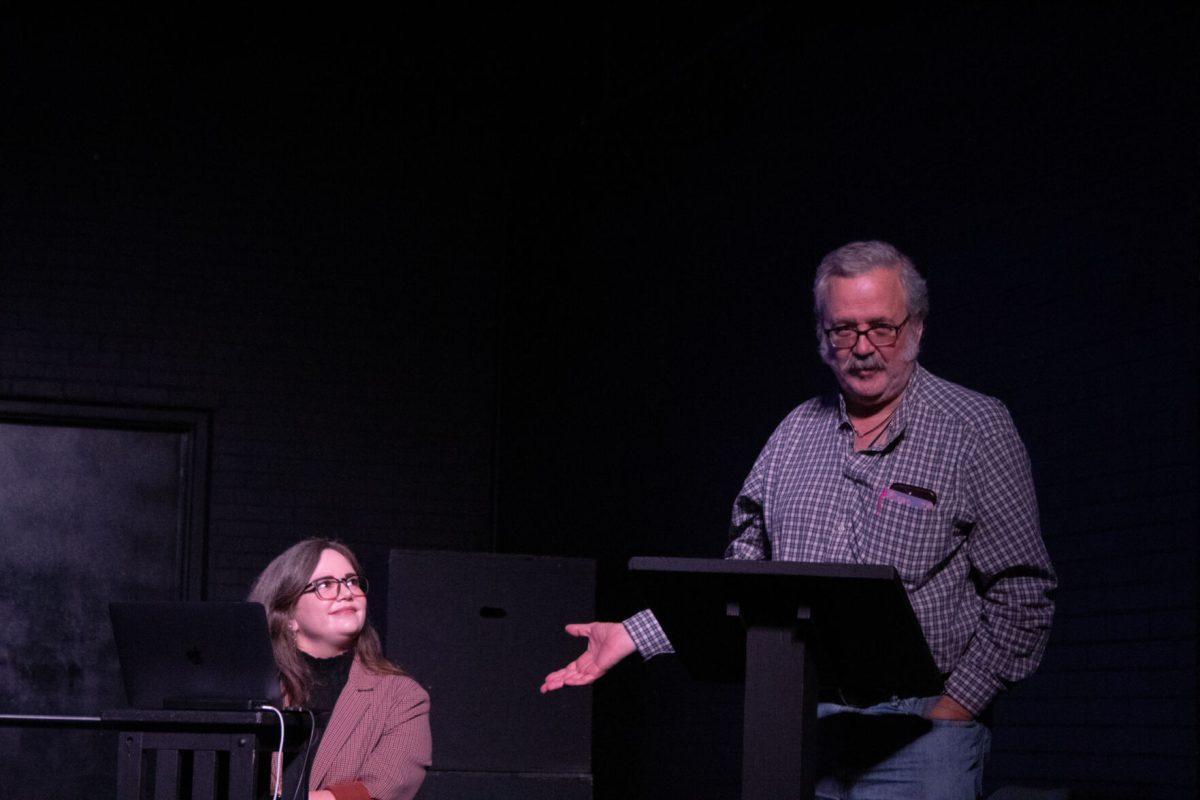Creative student performers came together at the African American Cultural Center Thursday to share their pieces at the Sankofa Poetry and Open Mic Night as part of the University’s Black History Month celebration.
Mass communication senior Kendra Davis, chair of the Black History Month Committee, said she and her team have been working tirelessly since September to coordinate this year’s Black History Month events. Davis said while some of the performers were familiar faces, others came in answer to the committee’s open invitation for performers to bring their spoken word, raps, songs and slam.
Performers covered a variety of topics Thursday night. The evening began with a piece about romance and commitment and ended with an open-mic session for attendees to perform..
University sophomore Kateshia Swims said she often writes pieces about self-growth, which her first piece of the night reflected. In the piece, she encouraged listeners to stand firm in the risks they take and to “do it now and do it fully.” Swims later performed a short rap called “Off the Balcony.”
Swims said she sees events like Sankofa as representation of other important forms of creativity.
“A lot of the time when you think about black people and you think about art … it goes to rap and the negative connotation of rap. So I think these different forms of communication show that isn’t what it’s all about … and also that rap can be a form of poetry,” Swims said.
Zuwena Easterling performed spoken word that she dedicated to the “black queens” in her life as she spoke of the women who raised her, and black women like Sandra Bland and Korryn Gaines who were “never given a chance” during altercations with police.
“Never forget the queens who fought for the rights you have today,” Easterling said.
Desmond Collins began his piece with the hook from J. Cole’s “Be Free,” as Collins said he resonates with J.Cole’s message that police brutality is limiting the potential of the black community.
No matter the topic the performers discussed, Davis said having a creative outlet like Sankofa enabled students to discuss issues they care about and to help tell the story of their community.
“I feel like so many times our culture … can get lost. We put on events like these … so we can continue to tell the story of our people, past, present and future,” Davis said.









